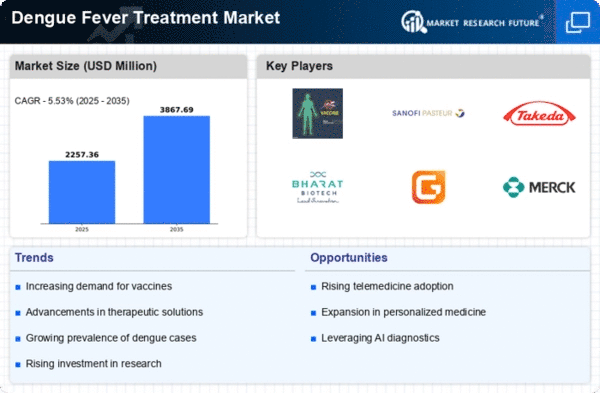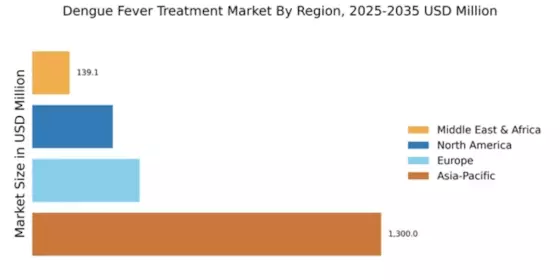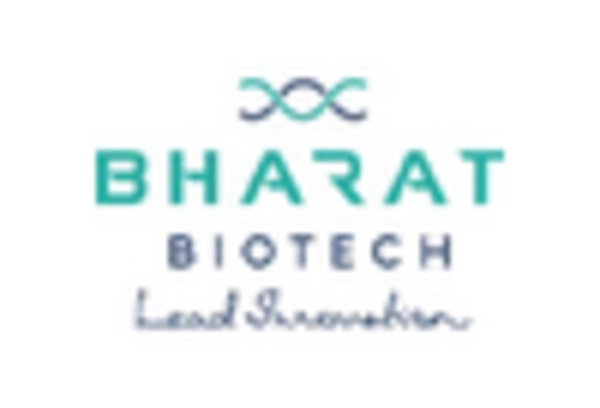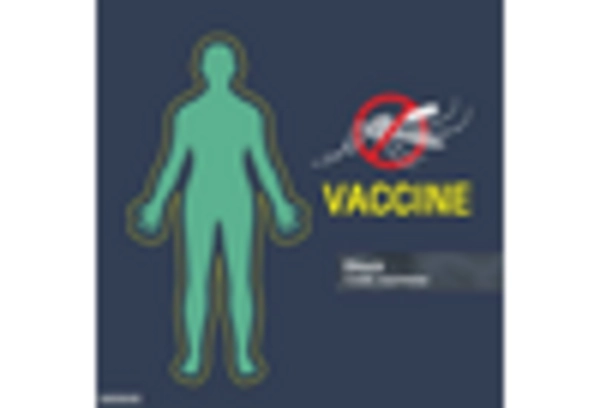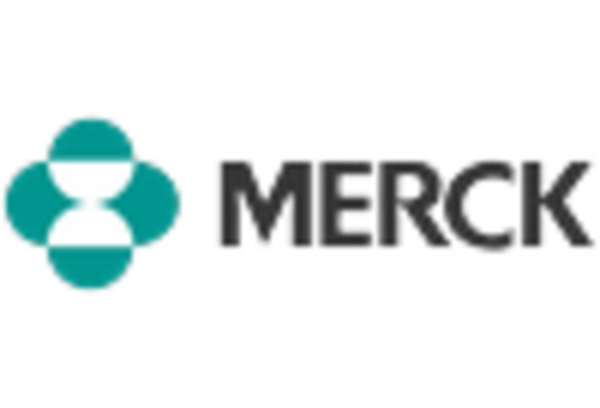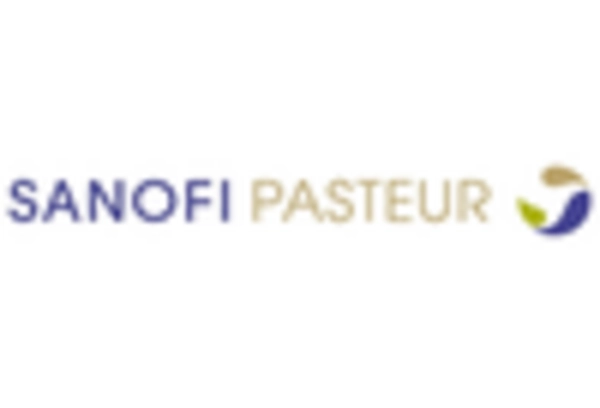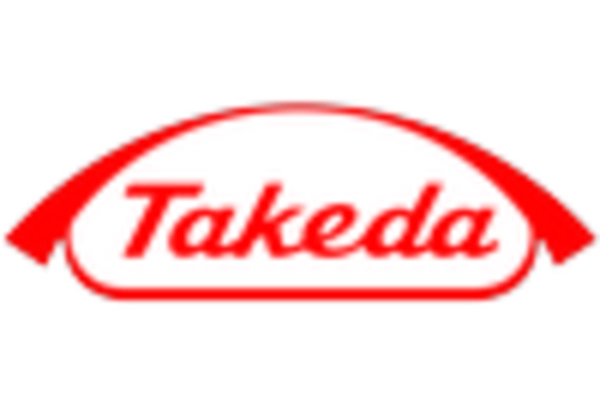Market Growth Projections
The Global Dengue Fever Treatment Market Industry is poised for substantial growth, with projections indicating a rise from 2.14 USD Billion in 2024 to 3.86 USD Billion by 2035. This growth trajectory reflects a compound annual growth rate of 5.51% from 2025 to 2035, driven by various factors including rising incidence rates, advancements in treatment modalities, and increased government funding. The market's expansion is indicative of a broader recognition of dengue fever as a critical public health issue, necessitating ongoing investment in research and development. As the industry evolves, stakeholders are likely to adapt to emerging trends and challenges, ensuring the availability of effective treatments for affected populations.
Growing Awareness and Education
The growing awareness and education surrounding dengue fever contribute to the expansion of the Global Dengue Fever Treatment Market Industry. Public health campaigns aimed at informing communities about prevention and treatment options are becoming increasingly prevalent. Enhanced understanding of the disease's transmission and symptoms encourages individuals to seek timely medical intervention, thereby driving demand for effective treatments. As awareness increases, the market is likely to witness a surge in treatment uptake, further supported by healthcare providers' efforts to educate patients. This trend is crucial in mitigating the disease's impact and fostering a proactive approach to dengue management.
Rising Incidence of Dengue Fever
The increasing incidence of dengue fever globally serves as a primary driver for the Global Dengue Fever Treatment Market Industry. With the World Health Organization reporting a significant rise in cases, particularly in tropical and subtropical regions, the demand for effective treatment options is escalating. In 2024, the market is projected to reach 2.14 USD Billion, reflecting the urgent need for innovative therapies. This trend is likely to continue as climate change and urbanization contribute to the proliferation of mosquito vectors, thereby increasing the disease burden and necessitating advancements in treatment methodologies.
Government Initiatives and Funding
Government initiatives and funding aimed at combating dengue fever significantly influence the Global Dengue Fever Treatment Market Industry. Various countries are implementing comprehensive strategies to control mosquito populations and enhance public health responses. For example, increased funding for research and development of vaccines and treatments is evident in many endemic regions. Such initiatives not only bolster treatment availability but also raise awareness about dengue prevention. The projected compound annual growth rate of 5.51% from 2025 to 2035 underscores the potential impact of these governmental efforts on market expansion and the overall healthcare landscape.
Advancements in Treatment Modalities
Innovations in treatment modalities are propelling the Global Dengue Fever Treatment Market Industry forward. Recent developments in antiviral therapies and supportive care strategies have shown promise in improving patient outcomes. For instance, the introduction of novel therapeutics that target specific viral pathways could enhance recovery rates. As the market evolves, the anticipated growth from 2.14 USD Billion in 2024 to 3.86 USD Billion by 2035 indicates a robust pipeline of new treatments. This growth is further supported by ongoing clinical trials and research initiatives aimed at optimizing dengue management, thereby addressing the pressing healthcare needs of affected populations.
Emerging Markets and Economic Growth
Emerging markets, particularly in Asia and Latin America, are witnessing economic growth that positively affects the Global Dengue Fever Treatment Market Industry. As these regions develop, healthcare infrastructure improves, leading to better access to treatment options for dengue fever. Increased disposable income allows populations to invest in healthcare, including preventive measures and treatments. The anticipated growth trajectory, from 2.14 USD Billion in 2024 to 3.86 USD Billion by 2035, highlights the potential of these markets. This economic advancement is likely to enhance the overall healthcare landscape, facilitating the introduction of innovative therapies and improving patient outcomes.


